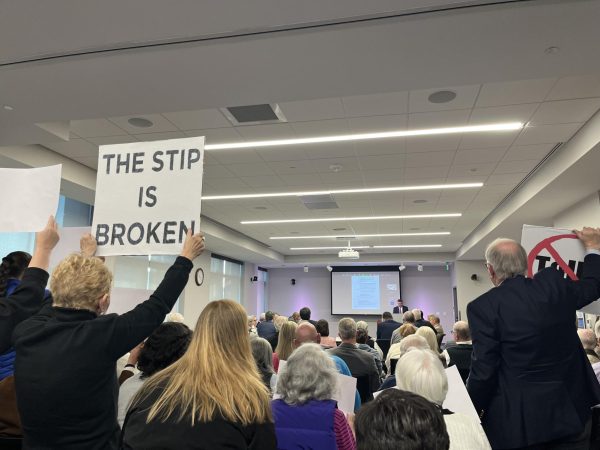Gov. McCrory cuts budgets for UNC school system
September 6, 2016
Gov. Pat McCrory has administered a new budget cut plan for the state of North Carolina and with it has come retaliation in regards to its lowered funding for the UNC school system.
The state, which has had a budget surplus of approximately $425 million, is cutting away $63 million from the UNC-system, according to the New Republic. This is accompanying the previous cut of $700 million during the previous recession.
For students, especially those attending UNC Wilmington, there will be an expected increase in tuition and overall cost of attendance. Most students fear this outcome, as it will bring about even more student debt for those relying on loans to pay off the finances of college.
However, according to Mark Lanier, an Assistant to the Chancellor and Assistant Secretary to the Board of Trustees at UNCW, the school’s finances are still very largely state funded.
At many other universities around the nation, students are paying more sums of money than their state is for their education. Lanier believes that UNCW is “still a bargain” and noted that “in North Carolina, we’ve basically reached the 50/50 point” where students are paying roughly the same amount as the state for their education.
Lanier works closely with the school’s finances, and according to his research, students are paying roughly $8,000 a year while the state pays $10,000 per student. However, this varies for in-state and out-of-state students, considering those who are in-state students receive subsidies.
While the budget cuts are driving universities across North Carolina to find other means of funding, whether this is by raising tuition and fees, relying more on alumni donations, or cutting positions and resources, universities are also dealing with issues of finding ways to improve the quality of their higher education.
During the recession, which gravely affected North Carolina public universities, UNC-Chapel Hill in 2011 “eliminated 493 positions, cut 16,000 course seats, increased class sizes, cut its centrally supported computer labs from seven to three and eliminated two distance education centers,” according to the Center on Budget and Policy Priorities.
In an effort to continue rehabilitating the economy and school funding, the Governor’s budget will include “$3 million to recruit and retain ‘exceptional’ faculty who receive competing offers,” according to Higher Education Works.
This bonus of sorts, however, has received criticism, as it will only be a one-time raise to universities to administer. Faculty will not be repaid this initial bonus to either recruit or retain, and universities will not be offered any additional or reoccurring sums of money to help create a continuation of this.
On the flip side, coupling the $3 million budget for this fiscal year, certain faculties who are considered “exceptional” will be receiving a raise of, on average, about 3 percent of a permanent salary increase as well as an additional approximately 1.5 percent one-time bonus.
Guaranteed across the board to all faculties, a 1.5 percent bonus is ensured to all faculty beginning this year as well, as these salary increases and bonuses are a part of the greater effort to ensure the quality of professors and promote retention among faculty.
Additional to the increase in pay for faculty, the UNC-system has a Faculty Recruitment and Retention fund, which will essentially offer large funds to faculty who are tempted to leave the UNC-system.
Faculty at North Carolina public universities, however, are eager to see these raises implemented as they have already expressed frustration at receiving “only a single raise of 1.2 percent from the General Assembly in the past seven years,” according to Higher Education.
According to Higher Education Works, the average faculty salaries at 11 out of North Carolina’s 16 public universities are so low that they are currently ranked below the 50th percentile when compared to similar universities.
Lanier is well aware of these issues and is confident in the state’s budget cutting and funding decisions towards the school, as he believes they have been very good to UNC Wilmington, contrary to what the media portrays.
Caleb Mabe, who is the chair of SGA’s Academic Affairs committee, would like the students to know that the future of UNC Wilmington’s faculty and quality of education will be ensured as they are continuously taking the steps towards protecting the classroom.














